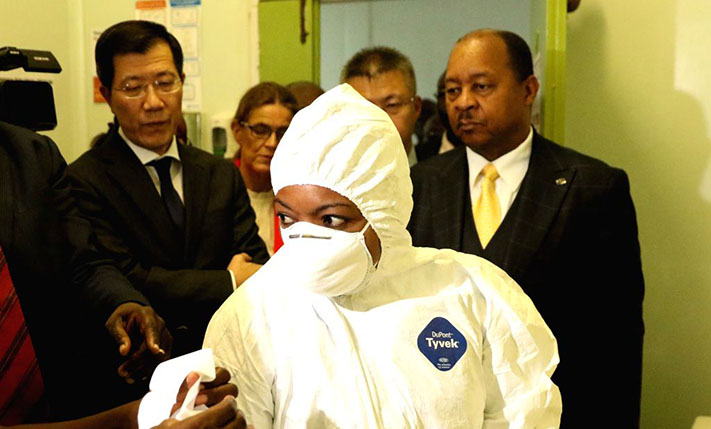Confusion over Zim’s coronavirus intervention
By Vanessa Gonye
Confusion has rocked Zimbabwe on the proposed medical intervention in the event of confirmed coronavirus infection, with Health minister Obadiah Moyo insisting on use of antiretroviral drugs, while Harare City Council health director Prosper Chonzi says they have agreed to use antibiotics.

In his presentation to Senate on Tuesday on the state of affairs in the country regarding the COVID-19, Moyo said the country would use Kaletra, an anti-retroviral drug, should they confirm cases of the deadly virus.
But while addressing members of Parliament at Wilkins Hospital on Wednesday, Chonzi said Harare would use antibiotics that were also in abundant supply to treat the disease should it find its way into the country.
The contradiction has left observers wondering on the form of medical intervention the country would use in the event the virus strikes. At least 19 cases have been confirmed in neighbouring South Africa in a space of a week and also spreading fast in the sub-Sahara region.
The virus’ rapid progression in South Africa is posing a risk on Zimbabwe, which has a weak health system and questionable preparedness.
Egypt recorded the first death in Africa when a 60-year-old male German tourist died on Sunday, with Algeria also recording a fatality yesterday as the number of deaths has surpassed
4 717, out of the 127 749 cases recorded globally.
Italy, with a death toll of 827 out of 12 462, now has the biggest death toll outside China, where the virus originated.
United States President Donald Trump yesterday announced a 30-day ban on “all travel” to the US from continental Europe — the United Kingdom and Ireland exempted — in light of the coronavirus threat.
But Moyo told Parliamentarians: “Please be aware of the fact that there is no vaccine yet for the control of COVID-19.
“What is available at the moment is as a result of some tests which were carried out by the Chinese and also one of the nations in Asia, where they found that the use of the current anti-retroviral, the ARVs that we use, one specific one called kaletra, which is a combination of antiretroviral which has what is called lopinavir and ritonavir and also in combination, if used, appear to work; together with another booster called anti-interferon, alpha interferon or an alpha interferon that can be able to reduce or stop the spread of the coronavirus.”
He added: “The Israelis have also come up with some form of medication including ‘quick-fix’ vaccine, which is still to be tried. So, that is the only form of treatment which is there at the moment. We have also read about the use of chloroquine. Normally, chloroquine is used for the treatment of malaria.”
About 1,4 million Zimbabweans are on antiretroviral treatment. He said the use of the ARV to treat coronavirus was a blessing in disguise as the country had an abundant supply of the lifesaving drug.
“At the moment, I also want to indicate that we are lucky that we have that kaletra available here in Zimbabwe and we made sure that it is distributed to all our treatment centres. On the kaletra, we can be able to manage the patients with ease when the disease comes” he said.
But Chonzi said Harare was offering supportive management care at Wilkins Hospital, but officials were yet to decide on administering ARVs for treatment of the virus.
“Currently, we have agreed to use antibiotics. We are not going the ARV route,” he said. News Day






